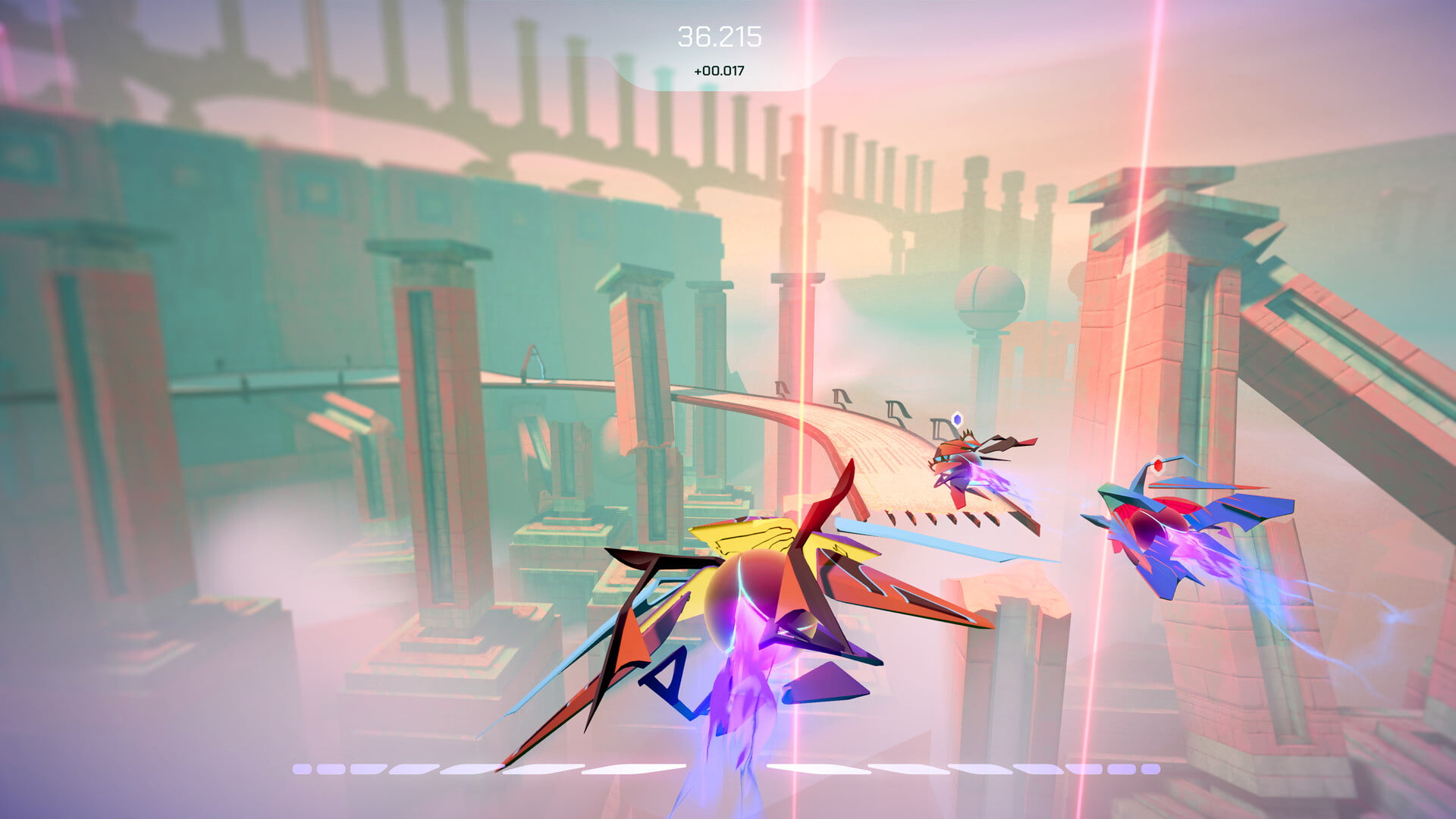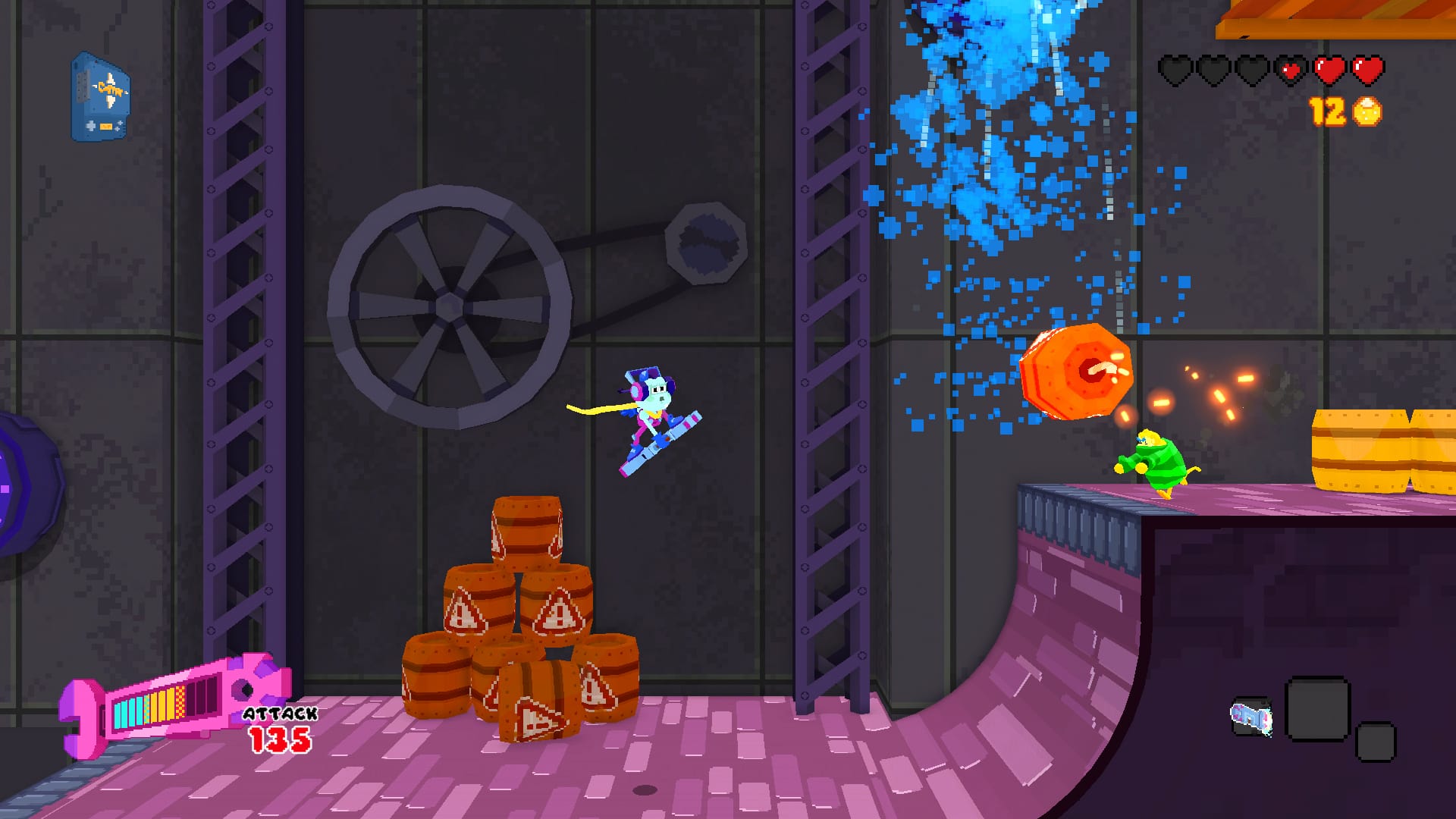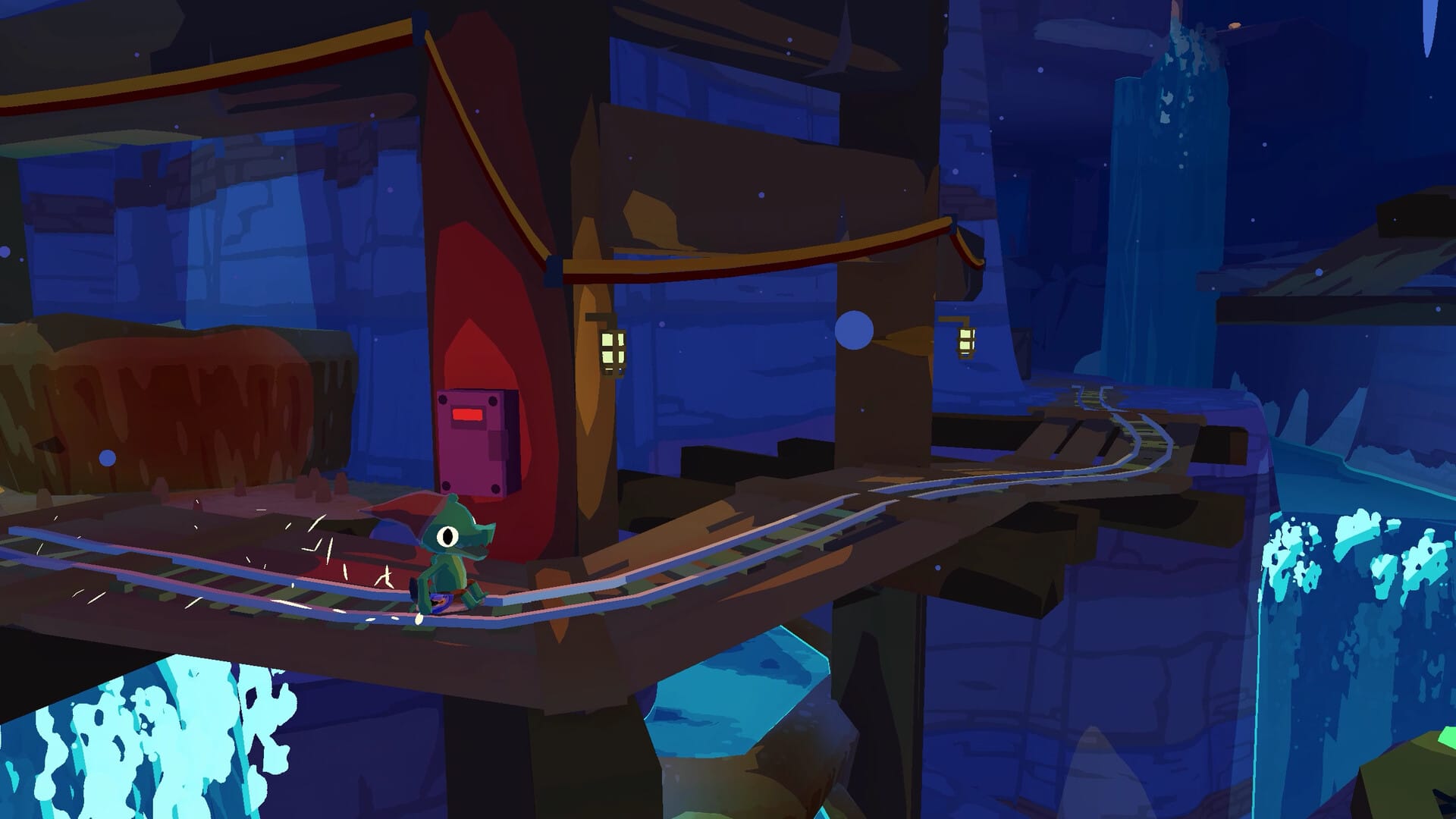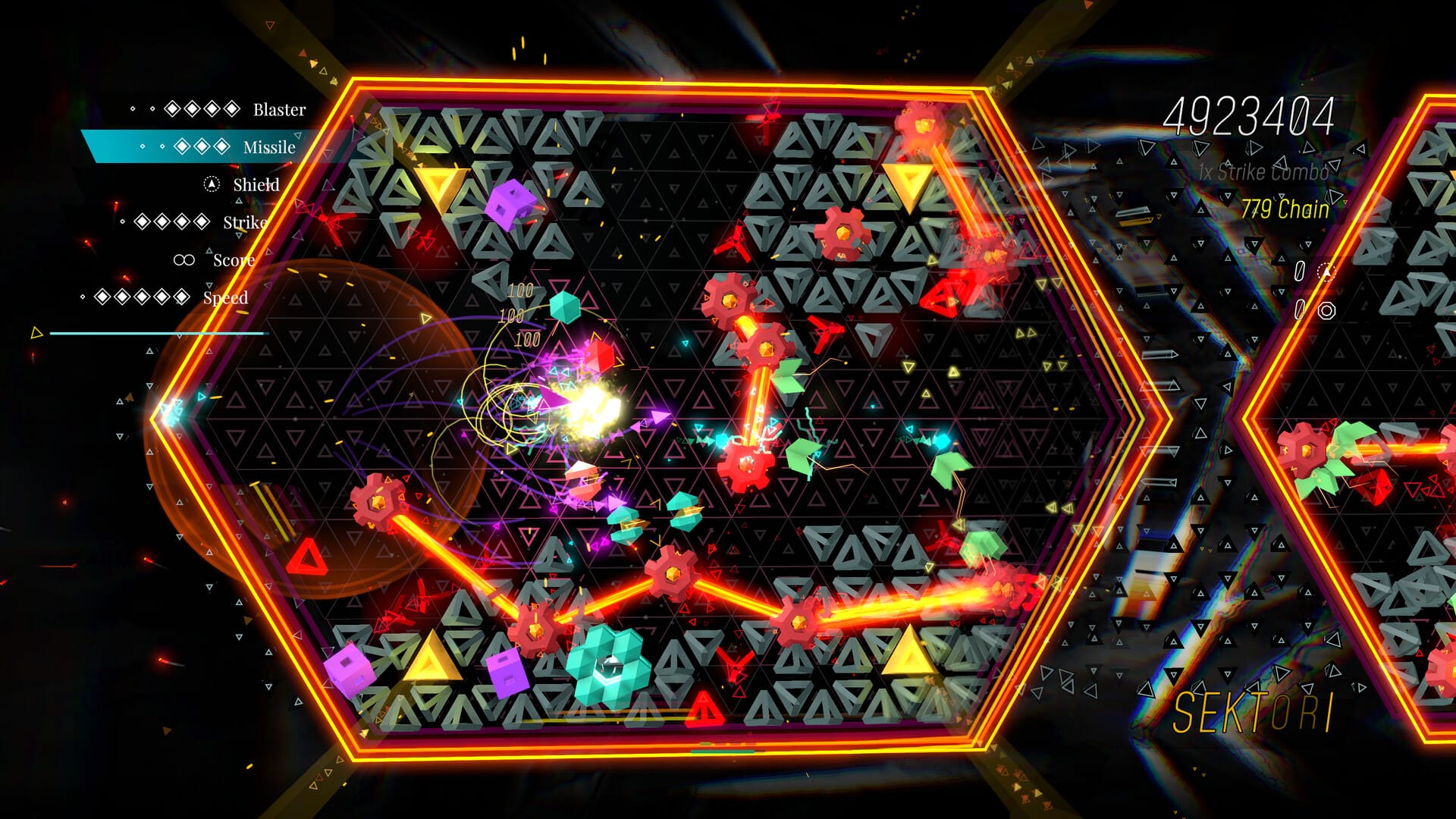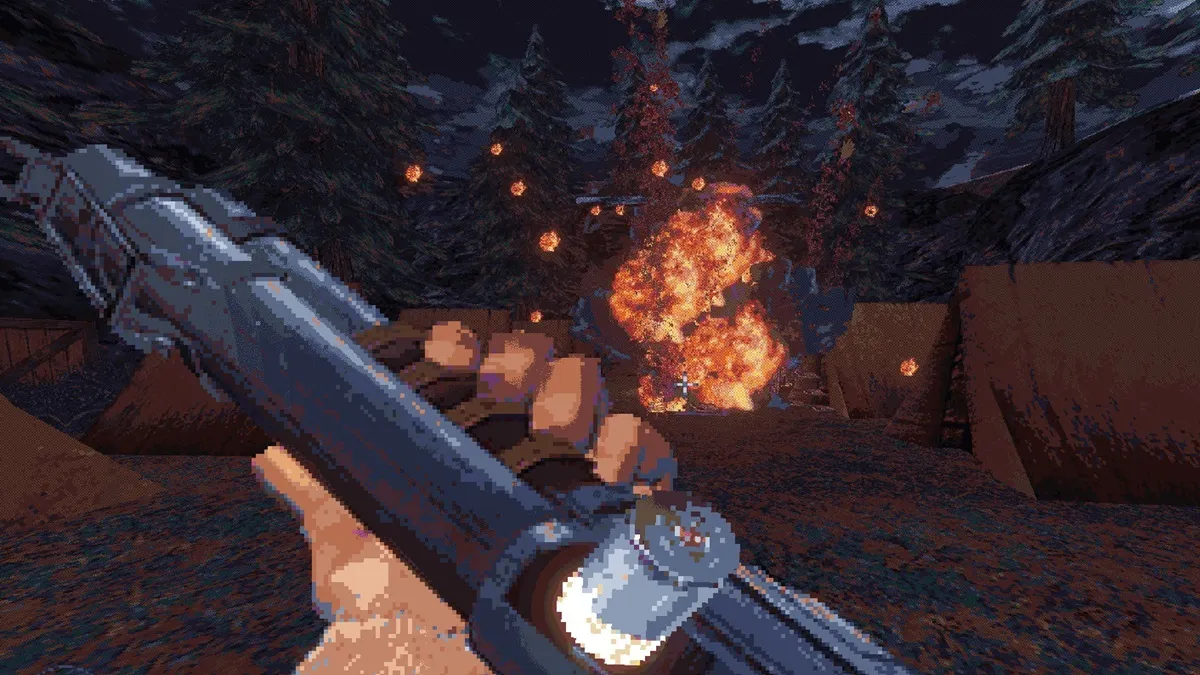Prior to playing Phantom Spark, I couldn’t have told you how best to take a turn at high speeds. I’d just assume you’d drift around the corner and it’d be fine. Taking the gas off the pedal for the briefest moment or purposely steering into the outside of a tight turn and starting early instead of trying to ride the inner wall wouldn’t have crossed my mind. That’s the sort of thing that’s more reserved for racing simulators than the arcade-style variety I’m familiar with.
But Phantom Spark isn’t like the arcade-style racing games I know. It’s a series of time trials set on winding tracks that demand some actual technical ability to make it across the finish line. This is not a game of drifting around corners at blistering speeds, nor one where you’re always trying to go as fast as humanly possible at all times. It’s a game of finesse, where understanding how to drive a lightning fast vehicle is necessary, where finding and mastering the racing lines is paramount.
Phantom Spark is about the process of mastery: the steady, repetitious process of learning every inch of a track and knowing how to tackle it in the cleanest, fastest way possible, and the dozens upon dozens of attempts it takes to get there. You do this over the course of three domains, each presided over by their own champion/instructor to compete against and learn from.

Having no experience with style of racing before, Phantom Spark simultaneously throws you into the deep end without much prep while also being easy to pick up. I struggled on some early tracks to grasp how I should be taking corners since all I had to go on was the tutorial briefly mentioning letting up on the acceleration for a second or using the brakes and few examples of how to use either properly. Both just slowed me down considerably whenever I tried. Why would I want to do that? I’m supposed to be going fast!
The moments everything clicked were twofold: one, watching a replay of my opponent’s ghost who kept beating me and trying to emulate what they did. And two, one of the separate trials that focuses on using a specific technique. I’d been slowly finding my footing by running the same tracks over and over, steadily improving my times, but both of those moments were key in making everything clear. Points that had given me trouble suddenly became far less difficult. I could make a good guess on how I should be tackling any given section of track now instead of banging my head against a wall trying to figure it out.
The whole process became unexpectedly calm. Previous experiences with time trials and high score chasing has usually resulted in demanding execution that only increases as the window for further optimization narrows. Trying to best friends’ times in Neon White was thrilling but also mentally and physically taxing. The faster the time, the more precise your execution had to become. The more precise your shots and movement needed to be, the greater the likelihood for error – and by extension, frustration – became. I expected the same would apply here, but it’s been constantly chill.
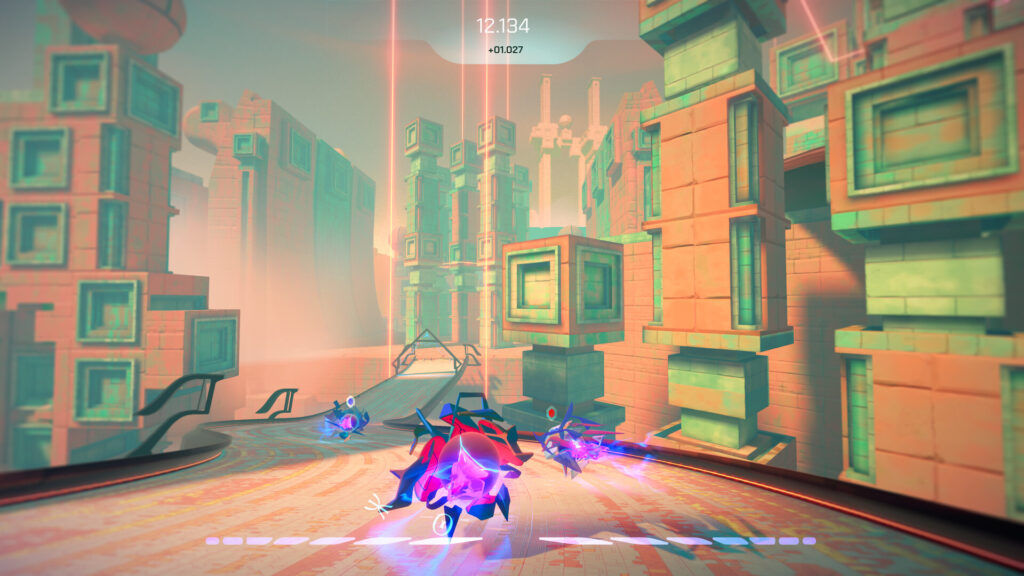
The difference is that Phantom Spark isn’t a particularly taxing game. Exhilarating, yes – its sense of speed capturing the feel of piloting a vehicle moving at a breakneck pace, the sound of the wind rushing by becomes more pronounced and the engine pushes itself harder and harder as you inch closer and closer to reaching top speed – but play is comparatively relaxed. There’s a meditative quality to driving the same track again and again. Even when I’m not making tangible gains on beating my opponent’s time, I still feel at ease instead of frustrated by a lack of progress.
But largely it’s just the overall vibe. Zooming through the otherworldly architecture, a mix of intricate ancient looking stonework and glimpses of futuristic aesthetics draped in bright, pleasing colors, listening to smooth, catchy beats that seamlessly transition between each other creates a perfect space for this kind of play. It’s specifically crafted to lull you into a meditative state, to place you in the right mindset to fail and learn to invite you into trying to beat your personal best again and again.
It’s a style of play I don’t often engage in but am always reminded how fun it can be when I do. There’s a simple pleasure in the low-stakes competition of besting developer times or going back and forth against friends on the leaderboards, one which suits the vibes of Phantom Spark‘s aesthetics perfectly.
Callum Rakestraw (he/him) is the Reviews Editor at Entertainium. You can follow him on Cohost at @crakestraw.

